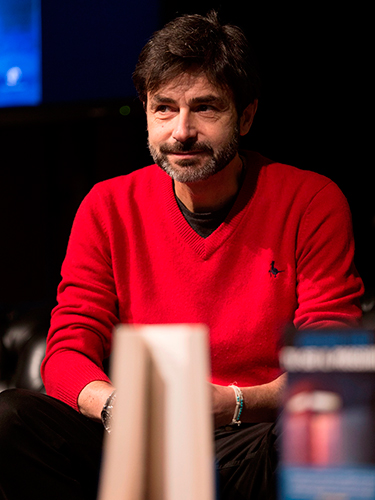Crimes (Un)solved
Stefano Tura, journalist and special correspondent for RAI’s channel 1 news, and a London resident for nearly ten years now, has turned out a heart-pumping thriller with this latest effort which delivers one plot twist after another. "I don’t let the reader stop to catch his breath. Although the story seems relatively simple at the beginning, the novel soon interweaves a series of parallel scenarios that constantly blend locations and characters, in a series of events and red herrings as well that keep the reader’s attention at all times," says the author. To write Tu sei il prossimo, Tura drew on several true crime stories connected with his job as a reporter, among them the tragic story of the disappearance of the child Lean Martins, the youth gangs that run rampant in English cities, and the secrets of the "dark net" revealed by Julian Assange.
"With search engines," Tura explains, "ordinary users just glimpse the tip of the iceberg of a universe that turns on coded languages, which are used just as much by the world’s diplomatic corps as they are by criminal networks. The protagonist’s assistant introduces him to this world, which is therefore explained to the reader as well." Ping-ponging between Italy and England, two unconventional detectives, the Italian Alvaro Gerace and the British Peter McBride, follow a trail of blood, forced in the same obscure direction. In the end, the mystery is unraveled in a grim denouement that betrays the author’s own disenchanted worldview. "There’s no consolation in the ending," claims Tura, "because the complex issues involved in the story cannot be resolved, but also because the truth that emerges from trials is often approximate, without any real scientific proof. In Italy, in particular, myriad unsolved cases pile up over decades, closed and reopened again, over and over, tainted by the poor coordination of the forces involved in the investigations and the at times excessive publicity that turns them into media circuses. By contrast, where there are practically no appeals, cases are almost never reopened, and a single police force handles all cases."


